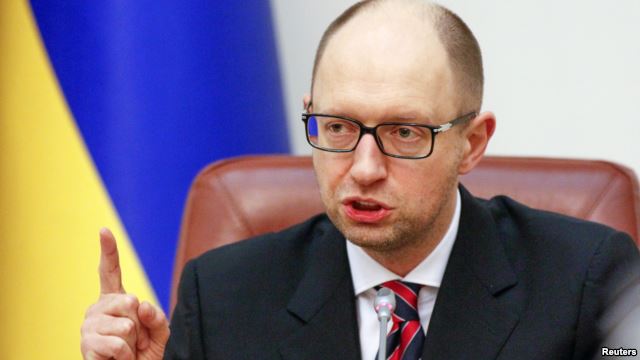The Ukrainian government plans to implement healthcare reforms and introduce health insurance, Prime Minister Arseniy Yatseniuk said during a Cabinet meeting on December 9, as reported on the government website.
Yatseniuk announced that special emphasis would be placed on cutting the cost of medicines by simplifying the approval process.
"We have introduced a law in parliament that calls for the de facto recognition of all medicines and drugs that have been certified in the EU, US, Canada, Australia and Japan. This means that we are abolishing the bureaucratic and corrupting process of registering medications and drugs that have already undergone appropriate registration and certification in these countries," he said.
Additionally, he said the government intends to conduct state procurement of drugs via international organizations -- a position that was included in the coalition agreement signed in November by the five leading political forces in the Verkhovna Rada.
"With regard to public procurement with public funds of medications and drugs, it is part of the coalition agreement and also the government's position: we are removing a number of medical procurement functions from the Ministry of Health and moving them to the UN. A number of specific vaccines and medicines, including HIV and other specialty drugs, will be purchased under the scheme and model of the UN system, including UNICEF, WHO and other international organizations," he said.
Under this system, a country enters into an agreement with international organizations who handle the procurement of drugs. It has been shown
that this process generally cuts the cost of medications by 30%.
Furthermore, Yatseniuk stated that the government plans to introduce complete health insurance to make sure the 8% allocated for healthcare in Ukraine is used effectively
"We declare that health insurance will be introduced in Ukraine -- complete health insurance. There is no free medicine in the country. It's a lie," Yatseniuk said, adding that the 8% figure is fully consistent with the level of healthcare spending in EU member states.
According to Yatseniuk, the 8% vanishes in Ukraine, however, and the money never reaches people, who have to pay for everything. "This is exactly why these 8% of budgetary expenditures on the healthcare system need to be utilized with maximum effectiveness by passing a Ukrainian law on health insurance," he said.
The new Health Minister of Ukraine, Oleksandr Kvitashvili, believes that Ukraine is not yet ready to switch to fully insured medicine and that partial implementation may be necessary.
"Right now I do not believe that Ukraine is ready to fully move to insured medicine because more money is being spent now on the preservation of the infrastructure and not on services. Under these conditions no insurance company would be willing to work," he said in an interview with the publication Delo, as reported by Ukrayinka Pravda.
He agreed that drug prices would be lowered by eliminated compulsory registration of drugs that had already been certified in the US and the EU. In Kyiv pharmacies, for example, drug prices are 40% higher than in Tbilisi, he said.
Earlier, acting health Minister Vasyl Lazoryshynets predicted that compulsory public health insurance would be introduced in 2016.
The coalition agreement signed by the five political parties in November called for the "phased introduction of compulsory state social health insurance (single channel delivery of health services) and the development of voluntary insurance," according to the UNIAN news agency.





